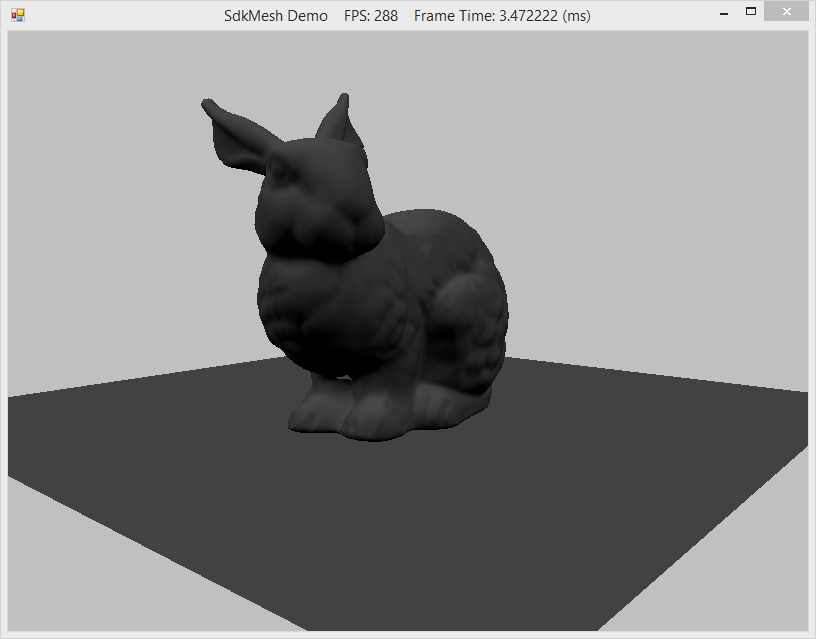Many moons ago now, I picked up a copy of HLSL Development Cookbook by Doron Feinstein. I had intended to work my way through it after I finished up Luna's Introduction to 3D Game Programming with Direct3D 11.0, but winter and life kind of got in the way...
Another difficulty I had with this book was that the code samples made heavy use of DXUT which was the semi-official Direct3D sample framework. With the Windows 8 transistion, DXUT is sorta-kinda deprecated now, and besides, SlimDX doesn't really have support for it - SlimDX is more of a bare-metal binding to the underlying DirectX framework, which DXUT sits on top of.
So in any case, I was going to have to do a fair amount of rework to adapt the samples from this book to fit into the framework of code that I'd built up over the past year or so. Swapping the UI related stuff out for WinForms controls hosted in my SlimDX app didn't seem as though it would be that hard, but a bigger stumbling block was the fact that all of the sample meshes provided with the code used the .sdkmesh format. SDKMesh is a 3D model format that used to be used in a lot of the DirectX sample code, after .X models kind of fell into disfavor (Of course, now it appears they are using yet another model format, .CMO). SDKMesh is unfortunately not supported by Assimp, so I can't use Assimp.Net to load SDKMesh meshes. Fortunately, it is a relatively simple binary format. The documentation, at least that provided in the DirectX July 2010 SDK, is a little spotty, and not totally correct, but its possible to figure things out by looking at the source code for DXUT and another C# SDKMesh loader that appears to have disappeared from the internet since I first found it...
Well, this has sat in my todo pile for long enough, let's get started. As always, you can get the code for this example from my public GitHub repository.

